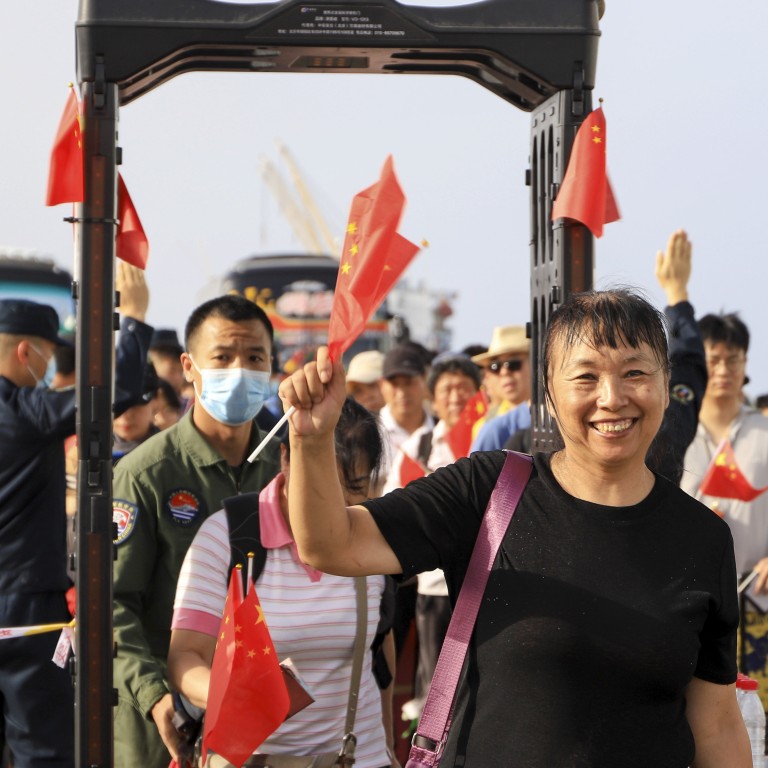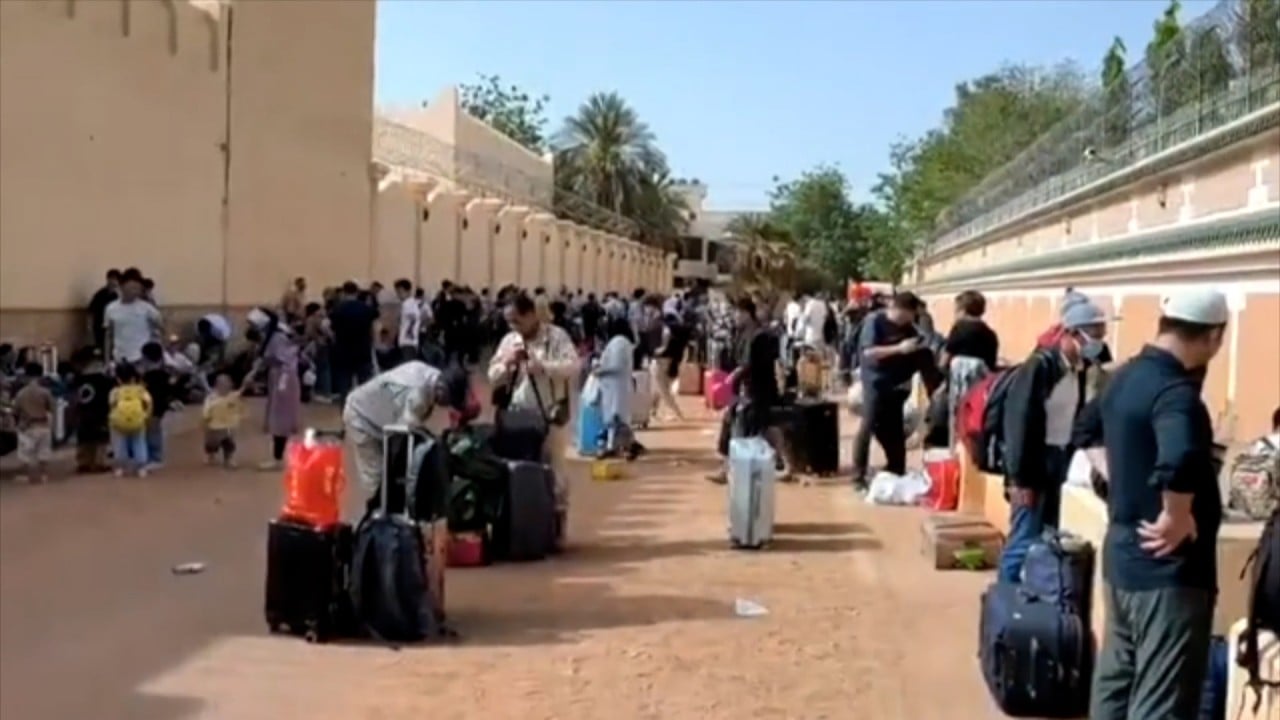
Evacuation from Sudan: how China’s years of African conflict experience led to successful mission
- Observers say Djibouti military base and lessons from Libya, Yemen and Ethiopia contributed to the operation
- More than 1,300 Chinese nationals were evacuated on Thursday in an operation that included two PLA Navy vessels
Conditions on the journey out of Khartoum were tough, with busloads of evacuees criss-crossing a bumpy and harrowing 1,000km (620-mile) journey through the desert to Egypt.
Others endured an arduous 850km (530-mile) drive to Port Sudan on the Red Sea, where they were picked up by Chinese naval vessels.
Observers said China appeared to be developing a doctrine for civilian evacuations, using local forces – often with the help of Chinese or locally based security contractors – and rented transport options to move people to safety.
Paul Nantulya, a China-Africa expert at the Africa Centre for Strategic Studies at Washington’s National Defence University, said China’s plan also involved maintaining open and active lines of communication with all warring sides during the operation.
“[And] when conditions permit, China also uses military assets in its evacuation operations,” Nantulya said.
“This is what we are seeing in the crisis in Sudan, where China has deployed the guided-missile destroyer the Nanning and the Type 903 comprehensive supply ship Weishanhu.”
The vessels were close at hand, part of the 43rd People’s Liberation Army naval task force on anti-piracy patrols in the Gulf of Aden, which China has been conducting since 2008. The supply ship was carrying a helicopter and more than 490 officers and soldiers, including dozens of special operations personnel.
Nantulya said it was clear China had learned from past experience, especially its evacuations from Libya in 2011 and Yemen in 2015. On both occasions, the PLA conducted complex evacuation operations that were fraught with risk.
China deployed four military transport aircraft and a naval frigate to get its citizens and other foreign nationals out of Libya. It was a huge effort that evacuated close to 36,000 Chinese nationals as civil war approached Tripoli.
China, no longer a ‘passive onlooker’, plays new role in African conflicts
PLA drills conducted with African forces – including February’s exercises with South Africa and Russia – showed the Chinese military was continuously training to prepare for these types of contingencies, Nantulya said.
“What this tells us is that when the country concerned has a coast, then we can expect China to use naval assets either from its base in Djibouti or from its ongoing anti-piracy patrols,” he said.
“We have not seen China using such assets in inland countries like Ethiopia and South Sudan. Regardless, China is showing more confidence in using the PLA more openly in Africa.”
China has had a naval presence in Africa since 2017, when its first overseas military base opened in Djibouti near the Bab el-Mandeb Strait between the Gulf of Aden and the Red Sea.
Do China’s Africa ambitions include a second military base?
Luke Patey, a senior researcher at the Danish Institute for International Affairs, said the Chinese vessels that carried the evacuees to Saudi Arabia frequented the Djibouti base.
“The Chinese overseas military base played a strong role in the Sudan evacuation, demonstrating its importance to Chinese national interests in the region,” he said.
More than 400 people have been killed and thousands wounded in Sudan since April 15, when fighting broke out between forces loyal to army chief Abdel Fattah al-Burhan and his former deputy Mohamed Hamdan Dagalo, commander of the powerful RSF paramilitary group.
The warring sides extended an evacuation window offered to foreign governments by a further 72 hours on Thursday. A small number of Chinese nationals were still in the country, outside the capital Khartoum, according to Chinese foreign ministry spokeswoman Mao Ning.
Patey agreed that China had gained experience in evacuating its nationals from African hotspots over the past decade. One lesson – which many countries, including China, struggled to maintain – was to have an accurate reading on which nationals were in-country when crises emerged, he added.
Benjamin Barton, an associate professor at the University of Nottingham’s Malaysia campus, said the closure of Khartoum’s main international airport meant China had to consider alternatives, such as arranging transport away from the conflict’s epicentre.
The evacuation from Libya was largely by sea, while in the Tigrayan conflict, Chinese nationals were escorted to safety by the Ethiopian National Defence Force – a testament to the relationship between Ethiopia and China, Barton said.
“Perhaps the situation most comparable to the one in Sudan is the 2013 evacuation of engineers working in oilfields in South Sudan caught up in the crossfires. China National Petroleum Corporation had to liaise with the embassy in Juba to safely order the evacuation of [Chinese] citizens,” he said.
China puts its military to the test in African peacekeeping roles
“There are now emergency mechanisms for consular protection put in place and close coordination between various government agencies – cells which are activated exactly for these types of crisis situations.”
Barton said the permanent station in Djibouti would be of great help if the Chinese army needed to become involved in special operations to free citizens from zones contained by fighting.



